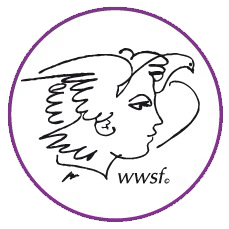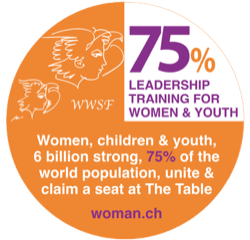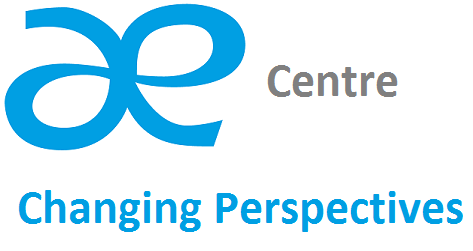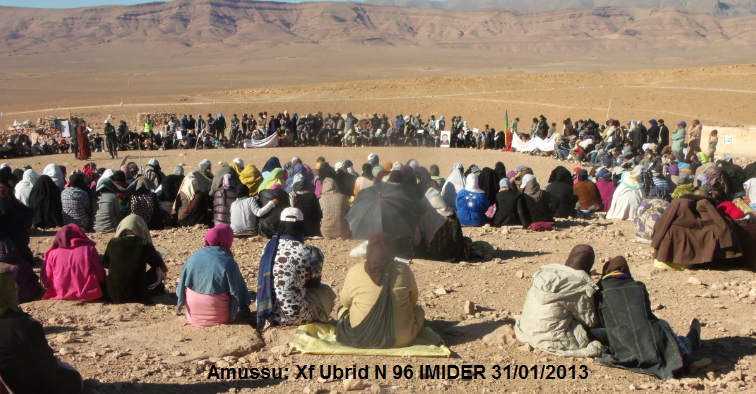Home > Records > Conflict Mediation and Resolution, for Peace and Development - Annual International Conference 15th December, 2022, United Nations > 2022 - Conflict Mediation and Resolution, for Peace and Development - Annual International Conference 15th December, 2022, United Nations
3rd Annual International Conference on Conflict Mediation for Peace and Development - 15 December, 2022, United Nations
(Other continental or worldwide networks, please contact us) Please forward to everybody you know active in the domain.
Bellow the Call for Contributions (Call for Abstract).
For all proposal of communication for the Program, please use the form on this page.
Call for Contribution 2022 :
International Annual Conference on Conflict Mediation
in the frame of the 14th GENEVA FORUM, December 12-16, 2022
United Nations, Geneva, Switzerland
| Thursday 15 December, 2022
from 1:00 pm to 06:00pm |
FREE ENTRANCE UNDER SUBSCRIPTION (United Nations Access Pass) |
| Presentations will be held in english and french. Debates and questions will be organized in english and french. | |
| Leading Projects of Education to Science and Citizen Sciences since 1992, and creating 1st Participatory Researches Camps in 2004, the NGO Objective Sciences International have the Special Consultative Status to United Nations. Active in all continents, the NGO organize every year, since 2012, the International Annual Conference on Rights of Nature in United Nations, at which one participate all Governments actives in this domain or interested by these works. From 2016, and every year, OSI organize into the heart of the United Nations hemicycle the International Annual Conference on Conflicts Mediation for Sustainable Development, in order to allow all the actors and operators in these domains to exchange, meet and share directly and at the largest international level. | |
| Conflicts Mediation -An effective conflict resolution method that needs to be popularized Since the end of the Cold War, non-state actors have become increasingly involved in conflicts and the method of resolution has had to evolve as well. In this context, mediation has emerged as one of the most suitable method. In addition to reduce the intensity of the dispute, it deals with the root causes in order to prevent reengagement. This process, which is diplomatic in nature, can also prevent the outbreak of discord. The discussion around mediation would consist of finding and implementing solutions that would allow for behaviour that is conducive to peace, sustainable development and more virtuous in social and legal terms. The real challenge is to succeed in implementing, within the current political and legal system, the solutions presented by mediation, and then the entire population would benefit from a peaceful resolution of conflicts. These workshops will consist of : In view of the current challenges facing the planet and humanity, everyone have to take better decisions while respecting the environment: it can be done through mediation. The solutions it brings could be implemented in the functioning of society thanks to this type of high-level meeting that brings together all the actors concerned. | |
Conflicts Mediation / Alternative Dispute Resolution Mode
Several public or associative organizations that are active in the domain of Mediation, federated or organized, at the international level. The main national actors, the federations, and the specific operators, organized presently at the international level, and are called to meet annually at the end of the civil year, at the International Annual Conference on Conflict Mediation for Peace and Sustainable Development, at United Nations, in Geneva.
This annual space of sharing results and pooling of skills, allow to the actors of the domain to exchange practices, solutions, ideas, needs.
Your Annual Exchanges Resource
In the following of the national and continental meetings that are organized in each country and continent by the local federation, this International Annual Conference at United Nations allow the actors to implement in consultation, or to inform mutually, of progress and actions they lead during the year, or that they have in project.
The participants at this Conference are:
- Local and regional actors of different countries
- Thematic Actors by disciplines
- Regional or national federations
- Thematic Federations, by disciplines
- Regional agencies of Mediation
- Mediation office
- Governmental departments and international associations of Ministries
- Specialist Journalists
- UN agencies
- International Judes
- Criminal Judges
- Plenipotentiary Mediators
- Mediators Mandated
- Ambassadors
- …
Subjects that are in the agenda of this year are:
- Disarmament,
- The resolution of conflicts relating to territories,
- The resolution of water conflicts,
- The disputes settlement within companies,
- Banking law,
- Social mediation,
- Commitment to international mediation,
- Resolution of inter-state conflicts,
- The search for peace and peaceful solutions,
- …
Detailed Program
Exchanges between stakeholders of the meeting will happen in a round table between speakers and debates with the audience of the Assembly.
Organiser : NGO Objectif Sciences International, Geneva
Chairman : Thomas EGLI, Founder of Objectif Sciences International, Head of the GENEVA FORUM
Moderators : Christa MUTH, Professor at the University of Applied Sciences Western Switzerland
Here the Programme of the 5 days of GENEVA FORUM of December 2021, where are described the 2021 days dedicated to the Conference on Conflict Mediation for Peace and Sustainable Development Goals.
Official Opening Session - Thursday 16 December 13:30
Session organised by Objectif Sciences International in the frame of the International YEar of Sustainable Tourisme for Development.
- Keynotes
- Remarks on current situation
- Remarks about concepts of the International Annual Conference
Presentations currently proposed for 2022
Validated Presentations
Can you consider "free will" as the greatest quality of Man? ORAL PRESENTATION
« Freedom: It is one of those detestable words which have more value than meaning, which sing more than they speak » said Paul Valéry (Regards sur le monde actuel)
Are we free of our actions, or are our actions determined? This is a very old quarrel between philosophers and scientists, and it is still going on. Before answering the question, it is therefore necessary to examine the data of the problem and to clarify the notion of "free will".
Free will, to act or not to act! We are talking here of course about Putin!
Philosophical reflection and analysis from the point of view of conflict mediation, in the context of the current war and its global repercussions between Russia and Ukraine.
Mr Guy BOTTEQUIN, Conflict Mediator, Genève Accord, Switzerland, www.sweetjustice.ch
UKRAINIANS AND THE WAR: Saving the language, wandering the world ORAL PRESENTATION
Ukrainians are new citizens of the world. Because of the war we, many Ukrainians, are wandering in various countries of the world, seeking integration. Language is key to successsful integration. My presentation would cover a short story, why Ukraine historically spoke Russian and how it is now turning back to its own language; what happens to millions of Ukrainians outside of Ukraine and how to make language not a barrier but means of communication.
Mrs TKACHENKO-GORBACHEVSKAYA Nataliya, Task Force Translation, a linguistic services provider originated from Ukraine, Ukraine, www.taskforce.ua/en
KOKEO – A relay for diplomatic and peaceful communication through the collection of field reports ORAL PRESENTATION
This project contributes to the achievement of the 17 Sustainable Development Goals (SDGs) through the diversity of the topics brought to this diplomatic and peaceful communication.
Our general objective is to provide diplomatic and peaceful communication while acting as a relay for civil society (including scientific, financial, technical and associative partners)
The KOKEO teams act as a relay for civil society, especially for our scientific, financial, technical and associative partners.
Our working tools are the field reports which can take several forms depending on the targets and objectives to be impacted.
Our local coordination teams have Academy (training) and Mentoring (coaching) cells to teach our different local partners to write technical field reports to contribute together to benevolent and constructive actions.
The KOKEO Advocacy Commission will in turn take over to check, control and classify the reports collected and to impact through its diplomacy our elected officials as a priority.
The theme of the said Commission is :
The impacts of climate degradation on vulnerable and fragile beings.
Through this theme, we study the impacts on the three axes of human survival: HEALTH / WORK-FORMATION / HOUSING while putting the problems of the environment and ecology at the heart of all our concerns.
It is a project of solidarity and sustainability for a new responsible generation built after more than 5 years of research!
Mrs Vaddana KEO, Fondatrice-Présidente KOKEO, Jean-Marie BUKASA MALU, ambassadeur des Nations de l’OASP et Fondateur-Président de l’Association Afrika-Telema en charge du Conseil des Sage de KOKEO pour les relations en Afrique subsaharienne, et vénérable Kosal TEP pour les relations sur l’Asie du sud-est, www.kokeo.org
Leadership Training 4 women/youth ORAL PRESENTATION
Why 75% : Actors 4 Good claim a seat at The Table? To inspire the world with a wave of actions for Good, serving humanity with concrete support and compassion. The sheer number of 75%, 6 billion strong, of the world population gives this new campaign legitimacy to be included in co-designing with men new ways and paradigms to meet present challenges and respond to urgent needs. It’s time to showcase the huge volume of contributions by 75% Actors for Good, share their work for human rights, sustainable development and peace, and demand that the many promised Action plans, pledges, and promises announced by UN Member States over the past 30 years are delivered, and include the voices of women, children, and youth. We are not excluding male actors for Good, and there are many. WWSF commits to persuade political and economic world leaders - Presidents and Prime Ministers, corporate managers, politicians, and professors who are among the decision takers - to co-create with 75% A4G a new paradigm for Good, reducing conflicts and extreme inequalities among countries, tackling climate change, and achieving the UN Sustainable Development Goals, as well as the Human Rights Agenda. A Concept Note & Registration Form is available on our website www.woman.ch (http://www.woman.ch/) 75% campaign.
Invitation to join WWSF invites civil society organizations, NGOs, national & international associations, foundations, and diverse change-makers from around the world, engaged in advancing women’s and/or children’s rights in co-designing with men a new era where women and youth leadership must be the norm. Upon registration, you will receive our regular Newsletters and social media alerts, sharing developments of the 75% campaign, including selected information from registered members, relevant UN updates and developments, as well as an invitation to attend the Geneva 75% Forums for leadership training. Quote by António Guterres UN Secretary General "Women in leadership must be the norm"; https://news.un.org/en/story/2021/10/1103662 « The power imbalance between men and women remains the most stubborn and persistent of all inequalities. It finds its expression in many ways: in the rising rates of violence and misogyny that women and girls face in every society; in the extreme underrepresentation of women in decision-making positions; and certainly, in the myriad challenges faced by women in situations of conflict. In every humanitarian emergency, the clock on women’s rights has not stopped, it’s moving backwards. Yet too often, women remain on the periphery of formal peace processes. And they’re largely excluded from rooms where decisions are made. Today, women’s leadership is a cause. Tomorrow, it must be the norm..; "For our part, the United Nations will double down on truly inclusive peacemaking and put women’s participation and rights at the center of everything we do, everywhere we do it. The best way to build peace is through inclusion. And the best way to honor the inspiring commitment and bravery of women peacemakers is to open doors to their meaningful participation" Et la meilleure façon d’honorer l’engagement et la bravoure des femmes pacificatrices est d’ouvrir les portes à leur participation significative.
Mrs Maria Elly Pradervand, Women’s World Summit Foundation (WWSF), Switzerland
Company-community mediation for the development of mining areas in the Maghreb ORAL PRESENTATION
The extraction of natural resources or the installation of solar panels over large areas often leads to conflicts between the operator, the authorities and the inhabitants of the areas concerned regarding the distribution of the wealth generated, environmental degradation or the governance of the projects. A lack of transparency in the management of resources and extraction or investment projects, a lack of inclusive procedures and participation of the affected public in these projects, a lack of understanding of the possibilities for civic engagement in local governance, legal uncertainty and the absence of conflict management institutions are among the causes of these conflicts.
Company-community mediation aims to establish a participatory process for the governance of resource projects based on an institutionalised model that has been tested through concrete experiences. It thus responds to prevent and peacefully resolve the many conflicts that arise locally and spread nationally, impacting economic growth, environmental protection and political and social stability.
Mr Pascal GEMPERLI, ae-Centre, Switzerland, www.ae-centre.ch
Presentations done in 2021
Validated Presentations
Mediation in the legal framework and its effect on law accountability ORAL PRESENTATION
In the presentation submission titled “Mediation in the legal framework and its effect on law accountability“ the author aims to analyze how the basic principles of mediation are legislated in the legal systems and how it might affects the accountability within law. By applying a combination of methods of quantitative and qualitative comparative analysis, the author deals with the question of how the legal regulation of mediation affects the usage of court-ordered mediation and the success of such a mediation process. The author focused mainly on the legal grounding of the main principles of mediation, the historical and cultural context of their origin and the form of the mediation process for court-ordered mediation. The author based her work on the authentic wording of legal regulations and used officially available data for the quantitative comparative analysis, which related the usage of court-ordered mediation in the analyzed countries. The theoretical basis was determined by the concept of traditional mediation styles, its techniques and advantages. The author considers also stereotypes, which were used to implement mediation in legal codification. Uncovering meanings of legal instruments at the level of international jurisdiction is not only analyzing them, but has potential to act as a tool for controlling freedom in society.
Mrs. Iva BRIZOVA ; Student, Czechia, http://www.altraidea.com
Conflict Mediation REMOTE ORAL PRESENTATION
Ombudsman De Palo will present an exciting success story in the evolution of mediation as a way to resolve workplace disputes. At the beginning of 2021, five major United Nations agencies – United Nations Development Programme (UNDP), United Nations Population Fund (UNFPA), United Nations Children’s Fund (UNICEF), United Nations Office for Project Services (UNOPS) and United Nations Entity for Gender Equality and the Empowerment of Women (UN Women) – each signed a pledge committing to mediation of their workplace disputes: if one of their employees requests it, the agency will always come to the mediation table. The Office of the Ombudsman for UN Funds and Programmes, which has long provided conflict resolution services—including mediation—to the five agencies, will provide the mediation services.
The agencies’ pledge represents an affirmation of the fundamental importance of mediation to workplace harmony, as well as the importance of preserving mediation’s voluntary character. The pledge commits to the so-called "easy opt-out mediation model." This model requires an initial serious attempt to mediate the conflict, consisting of a first joint meeting with a mediator. Pursuant to the agencies’ pledge, if an employee requests mediation, the employer agency commits to joining this first meeting as well. Whether to proceed with mediation is then something each party remains entirely free to decide during that meeting or at any time during proceedings thereafter.
The agencies’ action represents multiple important milestones in the global development of mediation. It honors United Nations history. The notion that mediation should be used as a primary dispute resolution method, wherever possible, has been repeatedly affirmed by the United Nations General Assembly, and the pledge represents an important step in supporting those affirmations. The pledge also looks to the UN’s future. It is a significant step toward achieving UN Sustainable Development Goal 16, “Peace, Justice and Strong Institutions,” and the more specific goal within its Target 16.3 to “ensure equal access to justice for all” by 2030.
The pledge, further, follows up on the successful embrace of easy opt-out mediation by such global agencies as the World Bank and provides a current example of how improved access to mediation can be achieved by any entity, whether an NGO, a private corporation, or a governmental institution—all of which experience workplace conflict. In a striking display of inter-agency cooperation, the Funds and Programmes, led by UNICEF, supported a significant enhancement of the staffing, services, and resources provided by the Ombudsman Office, enabling it to meet the increased demand that the pledge will no doubt trigger. Along with their further coordination in adopting the pledge itself, the agencies’ actions can provide a model to other organizations.
Mr Mushegh MANUKYAN and Mr Giuseppe DE PALO, OFFICE OF THE OMBUDSMAN FOR UN FUNDS AND PROGRAMMES, United States, https://fpombudsman.org/
The management of inter-community conflicts through mediation ORAL PRESENTATION
The upsurge in inter-community conflicts in border areas is a source of concern as these conflicts can at times lead to conflicts between states. A situation which undermines social cohesion between the populations of the said area. What are the real causes of these conflicts ? Could mediation not be a better alternative method of resolving these conflicts ?
To provide answers to these questions, we worked from a number of sources : written and oral sources through field surveys. By choosing to deal with this theme, we wanted to arrive, in the light of knowledge on these conflicts, at the proposal of an effective mechanism for the resolution and prevention of these conflicts, in this case mediation.
Mr Olivier Wétuan YEHOUN, REVS PLUS, Burkina Faso, www.revsplus.org
How Mediation Can work in International conflicts: A Modest proposal for a peaceful future ORAL PRESENTATION
Mediation is also known as assisted negotiation, where no judge or testimony is required. In this oral presentation, I will describe mediation towards conflict resolution and its various essential stages. Various situations will also be described where mediation becomes extremely useful, such as where international tensions and emotions are increasing, urgent solutions are required, high levels of confidentiality are required etc. Some advantages of mediations and limitations will also be used. I will also discuss some effective mediation strategies. Preventive strategies, procedural strategies, communication and facilitation strategies will be discussed along with examples and case studies from major international conflicts. Some historical examples will be used to explain the strategies, including Acta de Brasilia and Kashmir dispute. I will explore and explain why some strategies are more effective than others in the light of examples from 1945 to date.
I will also talk about third party mediation of interstate conflicts, including actors, strategies, selection and bias. Critical attributes such as disputants, mediator, dispute and outcomes will be discussed. In the end, I will also present a modest proposal for mediation of international conflicts.
Mr Mohammad TOUSEEF, Trent Education Centre, United Kingdom, www.trenteducation.co.uk
Other potential presentations
La Non-discrimination et droits des peuples minoritaires POSTER PRESENTATION
<docNNNN|left> Le statut de minorité est consubstantiel à la naissance des premières grandes entités politiques. Néanmoins, les ordres politiques antiques et médiévaux se caractérisaient par un certain morcellement du pouvoir institutionnel. Ainsi, au moyen Âge, la gestion des cités ou des villes était basée sur des systèmes politico-juridiques placés sous la houlette de certains corps constitués, en l’occurrence le clergé et la noblesse qui voulaient souvent, malgré le poids des coutumes locales, imposer les mêmes règles juridiques à toutes les composantes de la population. Les Minorités peuvent se définir comme « un groupe de citoyens d’un État, en minorité numérique et en position non dominante dans cet État, dotés de caractéristiques ethniques, religieuses ou linguistiques qui diffèrent de celles de la majorité de la population, solidaires les uns les autres, animés fut –ce implicitement d’une volonté collective de survie et visant à l’égalité en fait et en droit avec la majorité. Une telle définition concerne manifestement les peuples minoritaires qui peuvent constituer, au moins du point de vue sociologique et/ou anthropologique, de véritables « nations » au sein d’entités étatiques qui n’ont pas encore réussi à construire une identité nationale ou politique servant de référent culturel pour l’ensemble de la population. Néanmoins, la notion de peuple a en réalité plusieurs acceptions et peut ainsi revêtir une dimension politico-juridique
Mr François-Xavier KETCHANTKEU, Réseau Camerounais des Organisations des Droits de l’Homme, Cameroon
For the registration form, see below.
To Propose an Abstract for Presentation
| Deadline for the presentation : Still open To submit a presentation, please use also the form bellow. |
Registration Form to the Event
- You contribute to the fees only if necessary (e.g. participation to a Networking Diner)
- To receive all information, please fill in this form as soon as possible
- Filling in this form does not give any obligation to participate. You will receive all the information by email as soon as the form will be validated. You can also consult the same information directly on your screen.
- For questions about access administration at the UN: please do not wait to ask for information via this form.


































